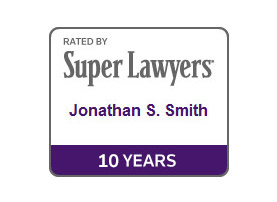What Are Your Rights When Police Officers Violate Your Constitutional Rights?
 Because they knew that criminal prosecutions could easily become politically motivated, our founding fathers were careful to ensure that the Bill of Rights contained specific language guaranteeing certain rights. Nonetheless, law enforcement officers will often seek to circumvent the rules, using illegal methods to gather evidence against you. What are your options when you have evidence that shows that police officers violated your constitutional rights?
Because they knew that criminal prosecutions could easily become politically motivated, our founding fathers were careful to ensure that the Bill of Rights contained specific language guaranteeing certain rights. Nonetheless, law enforcement officers will often seek to circumvent the rules, using illegal methods to gather evidence against you. What are your options when you have evidence that shows that police officers violated your constitutional rights?
The Most Effective Tool—A Motion to Suppress the Evidence
When you can show that law enforcement officers did not play by the rules, you have the right to file a motion with the court, asking that any evidence obtained through improper means be ruled inadmissible in court. Examples of when such a motion may be appropriate include:
- When police obtain physical evidence without a warrant or with a warrant based on false representations
- Where police use illegal wiretaps or similar efforts to gather evidence
- Where law enforcement officers fail to provide the required Miranda warnings when taking you into custody
Proven Baltimore County Criminal Defense Lawyer
Attorney Jonathan Scott Smith brings more than four decades of experience to criminal defendants throughout the Baltimore County area and across the state of Maryland. For more than 30 years, he has been consistently received an AV-rating (the highest rating possible) under Martindale-Hubbell’s Peer Review Rating System from his colleagues in the Maryland bar. He has been listed among the top 100 lawyers in Maryland listed by SuperLawyers and was designated a Top-Rated Lawyer by The American Lawyer Magazine. He has been the recipient of Martindale-Hubbell’s Client Distinction Award, an honor bestowed upon less than 4% of all lawyers nationwide.
Throughout his years in practice, attorney Smith has successfully protected the rights of individuals facing all types of criminal charges. He will zealously protect your constitutional rights, taking the time to carefully investigate your case and confirm that law enforcement officers and prosecutors follow proper procedures when gathering evidence. He’ll interview all key witnesses and preserve all relevant evidence, so that he can prepare and present the most compelling arguments for your acquittal.
Attorney Smith has been listed among the top 100 attorneys in Maryland by the National Trial Lawyers Association, a “by invitation only” professional organization. He holds a 10.0 (Superb) rating as a trial attorney from AVVO, as well as AVVO’s Client’s Choice Award, with an average client review of 5 stars.
Aggressive Maryland Criminal Attorney
Contact our office by e-mail or call 410-740-0101 for a free initial consultation. We represent criminal defendants in Carroll County, Frederick County, Howard County, Baltimore County, Prince George’s County and Montgomery County in Maryland.



 Under the 4th Amendment to the United States Constitution, law enforcement officers must have “probable cause” to conduct any search or seizure. The United States Supreme Court has made a distinction between probable cause and “reasonable suspicion,” limiting the powers of police offers when their observations fail to meet the standard for probable cause.
Under the 4th Amendment to the United States Constitution, law enforcement officers must have “probable cause” to conduct any search or seizure. The United States Supreme Court has made a distinction between probable cause and “reasonable suspicion,” limiting the powers of police offers when their observations fail to meet the standard for probable cause.






